Politics
Zohran Mamdani appoints all-women team to steer his transition to City Hall
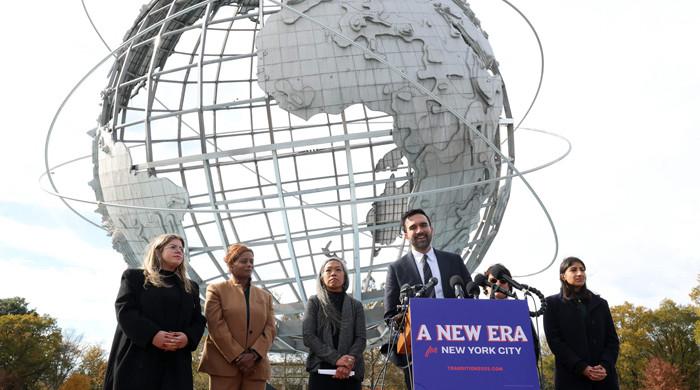
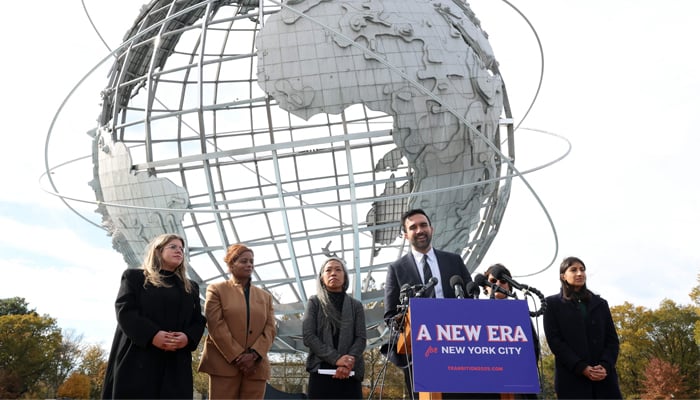
New York City’s newly elected mayor, Zohran Mamdani, is wasting no time setting the tone for his administration as the 34-year-old announced an all-women team to transition him into the new office, just a day after his election.
The move, he says, reflects his promise to build a City Hall that truly delivers for New Yorkers.
As per a report published in Times Magazine, the team brings together a diverse mix of women who have shaped city government over the past two decades, with experience in the administrations of Eric Adams, Bill de Blasio, and Michael Bloomberg. It includes former city and federal officials, non-profit leaders, and veterans of City Hall.
Speaking beneath the Unisphere in Queens, Mamdani told reporters, “I and my team will build a City Hall capable of delivering on the promises of this campaign,” pledging to “work every day to honour the trust that I now hold.”
Among those leading his transition is Elana Leopold, a progressive strategist and longtime de Blasio aide, who will serve as executive director. She’ll be joined by co-chairs Maria Torres-Springer, Lina Khan, Grace Bonilla, and Melanie Hartzog — women known for their expertise in public policy, city budgeting, and social impact.
While Mamdani stopped short of naming new top appointments, he reaffirmed his plan to retain Police Commissioner Jessica Tisch, originally appointed by Mayor Adams. Tisch has not yet confirmed whether she’ll continue in the role.
The transition team’s job is to ensure a smooth handover before Mamdani’s inauguration in January. Once in office, he’ll oversee nearly 300,000 city employees and a $100 billion budget — a huge task for a first-time mayor.
At his first post-election press conference, Mamdani said his transition marks the beginning of a “commitment to solving old problems with new solutions”.
Quoting the late Governor Mario M Cuomo, father of his opponent Andrew Cuomo, he added: “The poetry of campaigning may have come to a close last night at nine, but the beautiful prose of governing has only just begun.”
Mamdani’s win over former governor Andrew capped one of the city’s most closely watched elections in years. More than two million New Yorkers voted — the highest turnout in over half a century — giving Mamdani, a lead of around nine percentage points.
Politics
YouTube wipes out 700 videos depicting Israeli genocide during Gaza war
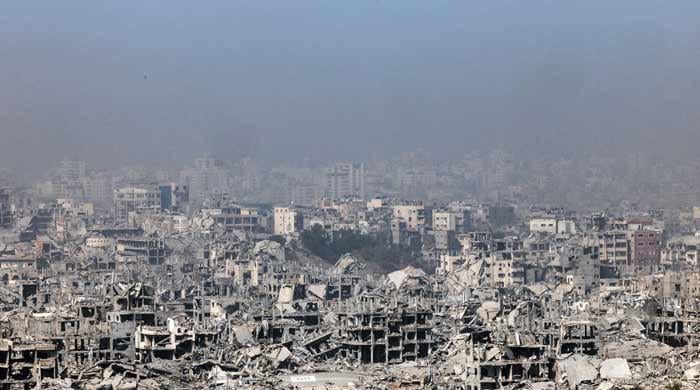
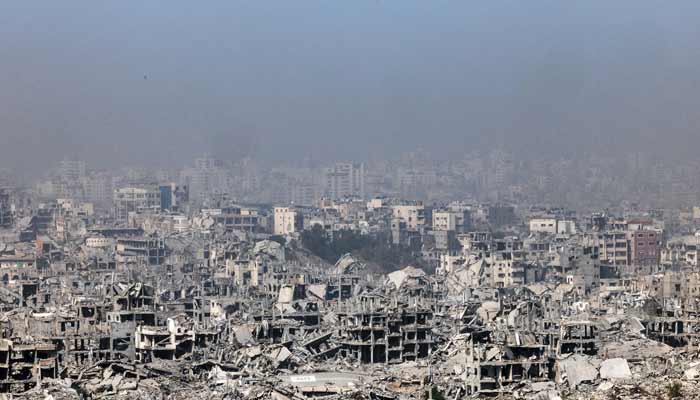
YouTube, a major tech giant, has wiped out at least 700 videos, highlighting human rights violations in Palestine during war and spotlighting Israeli offences and genocide in Gaza.
According to a report by The Intercept, the platform erased over 700 videos belonging to three prominent Palestinian rights groups: Al-Haq, Al Mezan Central for Human Rights, and the Palestinian Centre for Human Rights.
The videos had been deleted by the platform, showing the pain of the surviving mother in Israel’s genocide in Gaza, the killing of Palestinian American journalist, and others that spotlight Israeli-imposed destruction in Gaza.
The videos were removed after a US campaign that bars accountability of Israelis for their war crimes against Palestinians in Gaza and the West Bank, despite the International Criminal Court’s (ICC) issuance of arrest warrants for Israeli Prime Minister Netanyahu and Defence Minister Yoav Gallant for crimes against humanity in Gaza in October.
YouTube — owned by Google — confirmed accounts’ suspension, citing US trade and sanctions laws.
“Google is committed to compliance with applicable sanctions and trade compliance laws,” YouTube spokesperson Boot Bullwinkle said in a statement.
Katherine Gallagher, a senior staff attorney at the Centre for Constitutional Rights, said the platform was furthering the US administration’s agenda of concealing evidence of human rights violations and war crimes from public view by wiping out the content.
A spokesperson from one of the terminated organisations, Al-Haq, said that their YouTube channel was terminated without prior warning, showcasing a serious failure to follow its own principles.
Politics
Groping of Mexico’s president puts violence against women in spotlight
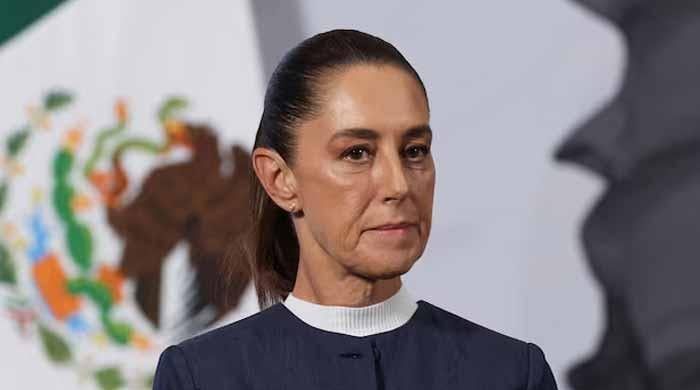
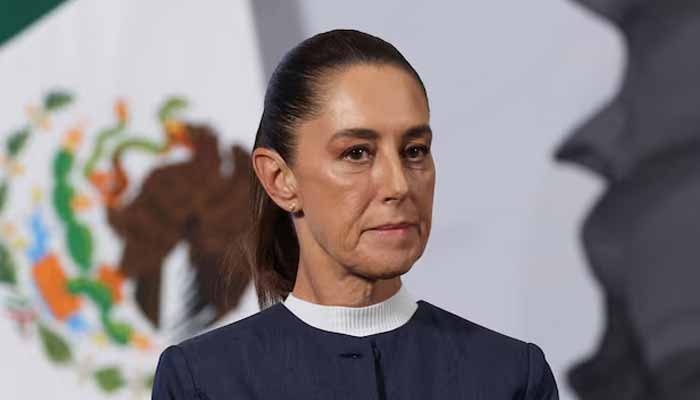
- Assault took place on short walk between meetings.
- President files complaint against man who groped her.
- Incident underscores violence women face daily.
Mexican President Claudia Sheinbaum said on Wednesday she filed a complaint against a man who groped her and tried to kiss her as she walked between meetings in the capital city, a day after a video of the incident went viral.
“If this happens to the president, where does that leave all the young women in our country?” said Sheinbaum, Mexico’s first female president. “No man has the right to abuse women’s personal space.”
Video of the incident quickly ricocheted across the internet before being taken down by some accounts, underscoring for many in Mexico the insecurity women face in a country steeped in machismo and gender-based violence.
It has also raised questions about Sheinbaum’s security detail. Like her predecessor, Andres Manuel Lopez Obrador, Sheinbaum travels with minimal security and makes herself widely available to the public, including wading into crowds of people.
She said on Wednesday that she did not plan to change that practice, saying, “we have to be close to the people.”
The incident happened on Tuesday in the capital’s historic centre as Sheinbaum was greeting members of the public while making the short walk from Mexico’s national palace to the Ministry of Education.
The video shows a middle-aged man putting his arm around Sheinbaum, touching her chest and attempting to kiss her. She moves his hands away before a member of her staff steps between them. The president’s security detail did not appear to be near her in the moment.
Sheinbaum said the man appeared to be drunk.
Re-Victimisation
She also blasted Mexican newspaper Reforma for publishing images of the man groping her, saying she considered it a “re-victimisation” and that it crossed an ethical line.
“The use of the image is also a crime,” Sheinbaum said, pointing to legislation against digital violence. “I am waiting for an apology from the newspaper.”
The federal government’s Women’s Ministry, created under Sheinbaum, issued a statement on Tuesday encouraging women to report violence against them, but asking media outlets “not to reproduce content that violates the integrity of women.”
Still, feminist activists have sharply criticised Sheinbaum in the past for not doing enough to address violence against women. Among other things, they point to lacklustre prosecutions and investigations of femicides – the killing of a woman because of her gender.
In 2024, Mexico recorded 821 femicides, according to government data. There have been 501 femicides recorded through September of this year, and many advocates say the numbers are likely far underestimated.
Criminalising harassment
Ana Yeli Perez of the National Citizen Observatory on Femicide said the groping of Sheinbaum puts the issue of violence against women on the national agenda again.
“It’s reprehensible, it must be denounced, it must be named, because it’s an act of violence, but it’s also a significant event and symbolic of what women experience every day,” she said.
Sheinbaum said sexual harassment should be a “criminal offence, punishable by law,” adding that she has asked Mexico’s Women’s Ministry to conduct a review of the legal codes in each state.
Sexual harassment is a crime in about half of Mexican states, as well as the capital, Mexico City.
Local media identified the man who assaulted Sheinbaum as Uriel Rivera and a state security filing showed he was arrested at 9 pm on Tuesday night.
Politics
Trump to host his first summit with Central Asian leaders
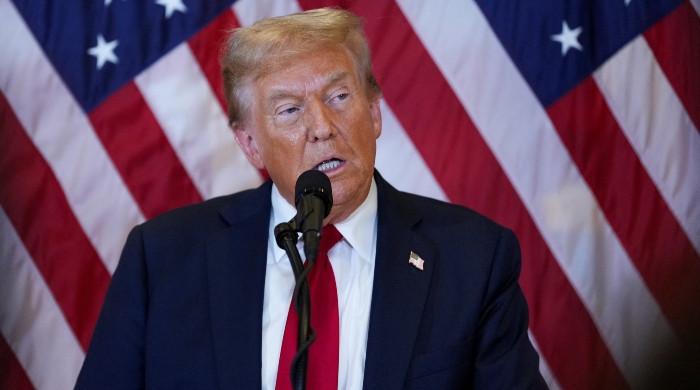
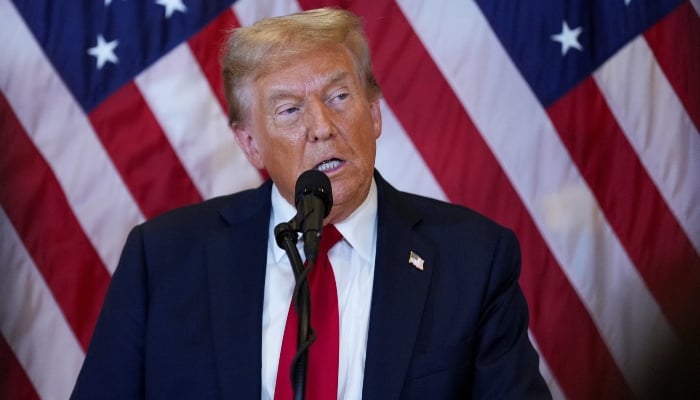
ALMATY: US President Donald Trump will host all five Central Asian leaders in Washington on Thursday for the first time, a few months after they held separate summits with Russia’s Vladimir Putin and China’s Xi Jinping.
The West has upped its interest with the resource-rich region, where Moscow’s traditional influence has been questioned since the Kremlin’s Ukraine invasion and where China is also a major player.
Race for influence
Since the Ukraine war, the leaders of Kazakhstan, Kyrgyzstan, Tajikistan, Turkmenistan and Uzbekistan have stepped up contacts with other countries in the so-called “C5+1” format.
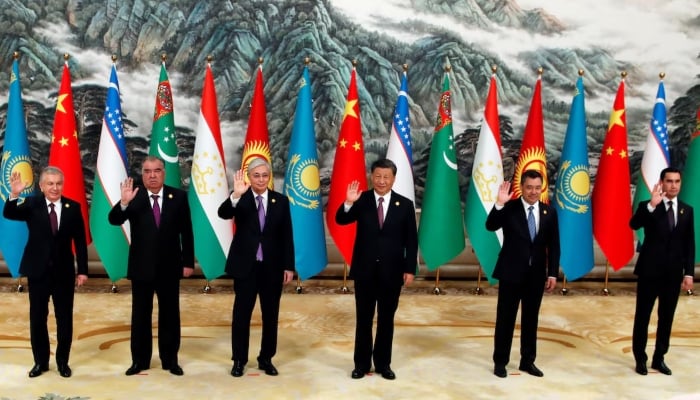
Washington and the European Union have intensified their diplomacy with the landlocked countries that gained independence from the Soviet Union in 1991, with a first US-Central Asia summit in 2023.
Russia, China, the West and Turkiye have all competed for influence in the resource-rich region.
This year, EU chief Ursula von der Leyen, Russian President Vladimir Putin and China’s leader Xi Jinping have all visited the region for summits with the five Central Asian leaders.
At the same time, ending most regional conflicts has enabled Central Asian countries to put on a united front in diplomacy.
China — which shares borders with Kazakhstan, Kyrgyzstan and Tajikistan — has presented itself as a main commercial partner, investing in huge infrastructure projects.
The ex-Soviet republics still see Moscow as a strategic partner but have been spooked by Russia’s invasion of neighbouring Ukraine.
Turkey has built on its cultural ties with Central Asia and taken advantage of a distracted Russia to boost military and trade ties.
The West established some ties with the region in the early 2000s, when Western troops used bases in Central Asia during Afghanistan campaigns.
Resource-rich region
The United States and European Union are drawn by the region’s huge — but still mostly unexploited — natural resources as they try to diversify their rare earths supplies and reduce dependence on Beijing.
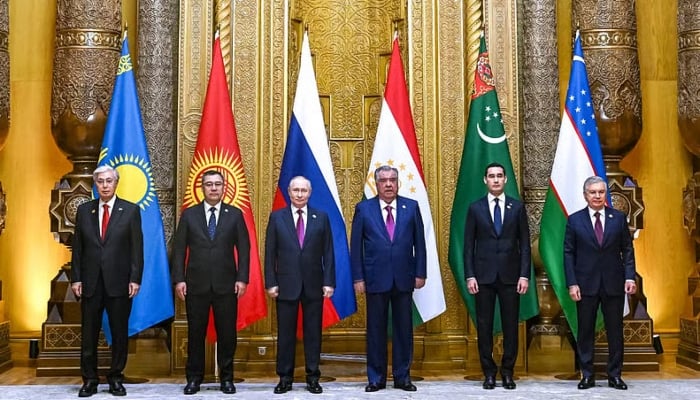
Other than rare earths, Kazakhstan is the world’s largest uranium producer, Uzbekistan has giant gold reserves and Turkmenistan is rich in gas. Mountainous Kyrgyzstan and Tajikistan are also opening up new mineral deposits.
Russia remains firmly established in the region’s energy sector, supplying hydrocarbons through Soviet-era infrastructure and building nuclear plants.
Central Asia is also one of the world’s most polluted regions and hardest hit by climate change. All five countries have struggled with a shortage of water.
Complicated logistics
But exploiting these giant reserves remains complicated in the impoverished states with harsh and remote terrains.
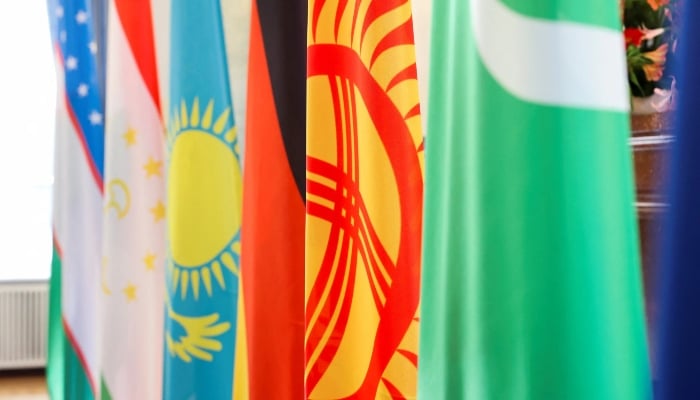
Almost as large as the EU, but home to only about 75 million, Central Asia is landlocked and covered by deserts and mountains. It is sandwiched between countries that have strained ties with the West: Russia to the north, China to the east and Iran and Afghanistan to the south.
But, on the Silk Road for centuries, it is attempting to revive its historic role as a trading hub.
The five Central Asian states have forged several partnerships to break free from their dependence on Moscow.
Both Beijing and Brussels support the development of a transport route across the Caspian Sea that allows reaching Central Asia from Europe through the Caucasus, bypassing Russia.
Between 2021, shortly before Russia’s Ukraine invasion, and 2024, the transport of goods by this road saw a 660% increase, official statistics show.
Muffled human rights
For Trump, who has expressed admiration for hardline regimes, economic cooperation with Central Asia has taken first place over promoting democratic values in the authoritarian countries.
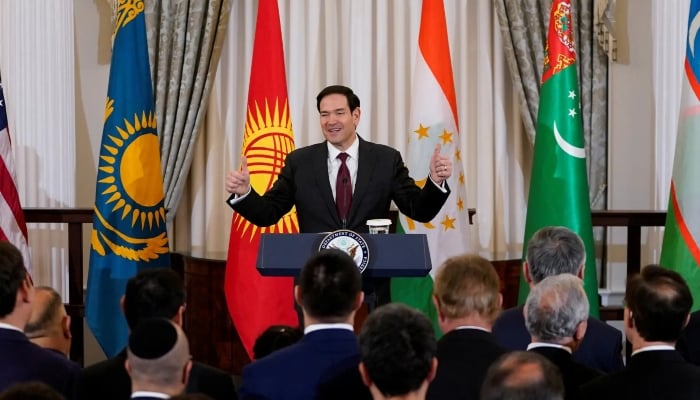
While the region has opened up to tourism and foreign investment, rights groups have sounded the alarm over the further deterioration of civil freedoms.
Human Rights Watch has called on the United States to “ensure human rights are a key part of the agenda” during the summit.
“The summit is taking place while all participating governments have increased efforts to stifle dissent, silence the media, and retaliate against critics at home and abroad,” it said in a statement Monday.
Central Asian countries are ranked at the bottom of the Reporters Without Borders press freedom ranking, with Turkmenistan — one of the world’s most secretive states — ranked 174th out of 180 countries.
Kazakhstan and Kyrgyzstan had welcomed Trump’s order to dismantle US media outlet Radio Free Europe — one of the last sources of alternative information in Central Asia.
-

 Tech1 week ago
Tech1 week agoUS Ralph Lauren partners with Microsoft for AI shopping experience
-

 Tech1 week ago
Tech1 week agoOpenAI says a million ChatGPT users talk about suicide
-

 Tech1 week ago
Tech1 week agoHow digital technologies can support a circular economy
-
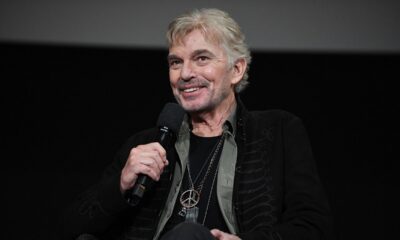
 Sports1 week ago
Sports1 week agoBilly Bob Thornton dishes on Cowboys owner Jerry Jones’ acting prowess after ‘Landman’ cameo
-

 Tech1 week ago
Tech1 week agoAI chatbots are becoming everyday tools for mundane tasks, use data shows
-
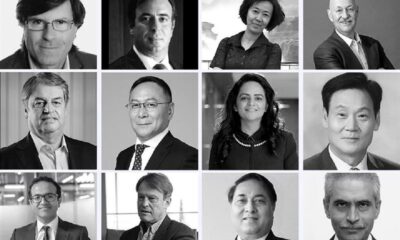
 Fashion1 week ago
Fashion1 week agoITMF elects new board at 2025 Yogyakarta conference
-

 Fashion1 week ago
Fashion1 week agoCalvin Klein launches Re-Calvin take-back programme across the US
-

 Business1 week ago
Business1 week agoLucid targets industry-first self-driving car technology with Nvidia






